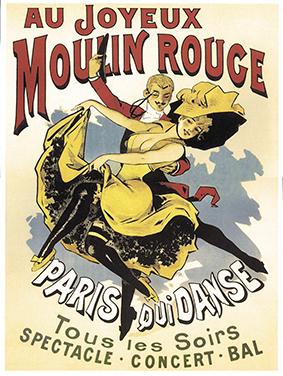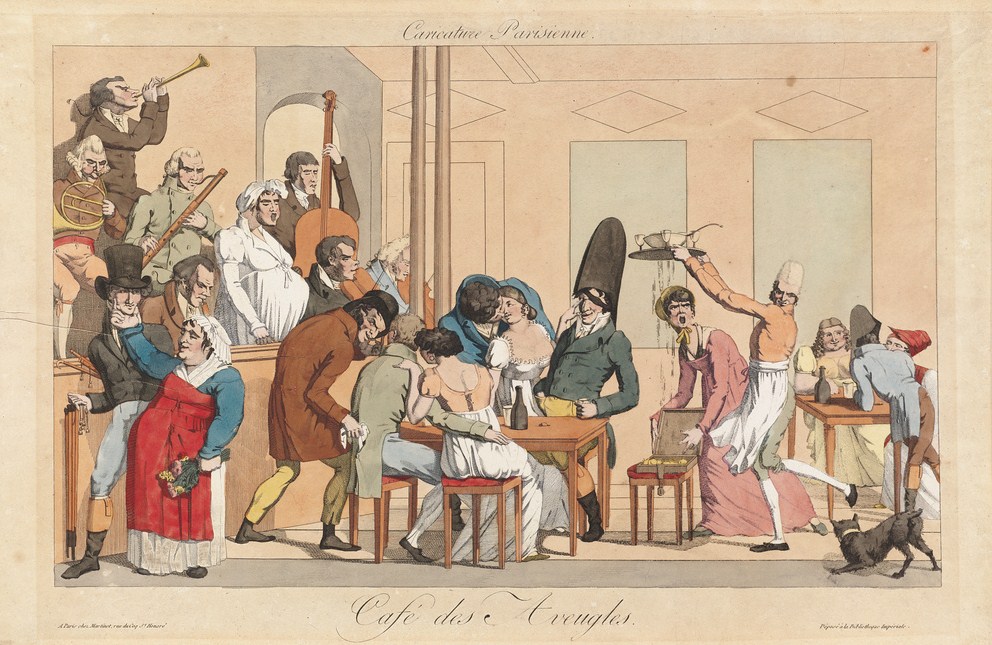|
Féerie (Moulin Rouge)
''Féerie'' is the resident stage show at the Moulin Rouge, a famous cabaret venue in Paris, France France (), officially the French Republic ( ), is a country primarily located in Western Europe. It also comprises of Overseas France, overseas regions and territories in the Americas and the Atlantic Ocean, Atlantic, Pacific Ocean, Pac .... The show premiered on 23 December 1999. It replaced the Moulin Rouge's centenary show ''Formidable'', which ran from 20 February 1988, to 14 November 1999. After the success of the revue ''Frou-Frou'' (1963–1965), a superstition emerged, and every show at the Moulin Rouge has since been titled with a name beginning with the letter F. ''Féerie'' continues this tradition. References {{DEFAULTSORT:Feerie Cabarets in Paris Theatre in Paris Moulin Rouge ... [...More Info...] [...Related Items...] OR: [Wikipedia] [Google] [Baidu] |
Moulin Rouge
Moulin Rouge (, ; ) is a cabaret in Paris, on Boulevard de Clichy, at Place Blanche, the intersection of, and terminus of Rue Blanche. In 1889, the Moulin Rouge was co-founded by Charles Zidler and Joseph Oller, who also owned the Olympia (Paris), Paris Olympia. The original venue was destroyed by fire in 1915. Moulin Rouge is southwest of Montmartre, in the Paris district of Quartier Pigalle, Pigalle on Boulevard de Clichy in the 18ème arrondissement, Paris, 18th ''arrondissement'', it has a red windmill on its roof. The closest métro station is Blanche (Paris Métro), Blanche. Moulin Rouge is best known as the birthplace of the modern form of the can-can dance. Originally introduced as a seductive dance by the courtesans who operated from the site, the can-can dance revue evolved into a form of entertainment of its own and led to the introduction of cabarets across Europe. Today, the Moulin Rouge is a tourist attraction, offering predominantly musical dance entertainment ... [...More Info...] [...Related Items...] OR: [Wikipedia] [Google] [Baidu] |
Cabaret
Cabaret is a form of theatrical entertainment featuring music, song, dance, recitation, or drama. The performance venue might be a pub, a casino, a hotel, a restaurant, or a nightclub with a stage for performances. The audience, often dining or drinking, does not typically dance but usually sits at tables. Performances are usually introduced by a master of ceremonies or MC. The entertainment, as done by an ensemble of actors and according to its European origins, is often (but not always) oriented towards adult audiences and of a clearly underground nature. In the United States, striptease, burlesque, drag shows, or a solo vocalist with a pianist, as well as the venues which offer this entertainment, are often advertised as cabarets. Etymology The term originally came from Picard language or Walloon language words ''camberete'' or ''cambret'' for a small room (12th century). The first printed use of the word ''kaberet'' is found in a document from 1275 in Tournai. The term was ... [...More Info...] [...Related Items...] OR: [Wikipedia] [Google] [Baidu] |
Revue
A revue is a type of multi-act popular theatrical entertainment that combines music, dance, and sketches. The revue has its roots in 19th century popular entertainment and melodrama but grew into a substantial cultural presence of its own during its golden years from 1916 to 1932. Though most famous for their visual spectacle, revues frequently satirized contemporary figures, news or literature. Similar to the related subforms of operetta and musical theatre, the revue art form brings together music, dance and sketches to create a compelling show. In contrast to these, however, revue does not have an overarching storyline. Rather, a general theme serves as the motto for a loosely-related series of acts that alternate between solo performances and dance ensembles. Owing to high ticket prices, ribald publicity campaigns and the occasional use of prurient material, the revue was typically patronized by audience members who earned more and felt even less restricted by middle-class ... [...More Info...] [...Related Items...] OR: [Wikipedia] [Google] [Baidu] |
Paris
Paris () is the capital and most populous city of France, with an estimated population of 2,165,423 residents in 2019 in an area of more than 105 km² (41 sq mi), making it the 30th most densely populated city in the world in 2020. Since the 17th century, Paris has been one of the world's major centres of finance, diplomacy, commerce, fashion, gastronomy, and science. For its leading role in the arts and sciences, as well as its very early system of street lighting, in the 19th century it became known as "the City of Light". Like London, prior to the Second World War, it was also sometimes called the capital of the world. The City of Paris is the centre of the Île-de-France region, or Paris Region, with an estimated population of 12,262,544 in 2019, or about 19% of the population of France, making the region France's primate city. The Paris Region had a GDP of €739 billion ($743 billion) in 2019, which is the highest in Europe. According to the Economist Intelli ... [...More Info...] [...Related Items...] OR: [Wikipedia] [Google] [Baidu] |
France
France (), officially the French Republic ( ), is a country primarily located in Western Europe. It also comprises of Overseas France, overseas regions and territories in the Americas and the Atlantic Ocean, Atlantic, Pacific Ocean, Pacific and Indian Oceans. Its Metropolitan France, metropolitan area extends from the Rhine to the Atlantic Ocean and from the Mediterranean Sea to the English Channel and the North Sea; overseas territories include French Guiana in South America, Saint Pierre and Miquelon in the North Atlantic, the French West Indies, and many islands in Oceania and the Indian Ocean. Due to its several coastal territories, France has the largest exclusive economic zone in the world. France borders Belgium, Luxembourg, Germany, Switzerland, Monaco, Italy, Andorra, and Spain in continental Europe, as well as the Kingdom of the Netherlands, Netherlands, Suriname, and Brazil in the Americas via its overseas territories in French Guiana and Saint Martin (island), ... [...More Info...] [...Related Items...] OR: [Wikipedia] [Google] [Baidu] |
Cabarets In Paris
Cabaret is a form of theatrical entertainment featuring music, song, dance, recitation, or drama. The performance venue might be a pub, a casino, a hotel, a restaurant, or a nightclub with a stage for performances. The audience, often dining or drinking, does not typically dance but usually sits at tables. Performances are usually introduced by a master of ceremonies or MC. The entertainment, as done by an ensemble of actors and according to its European origins, is often (but not always) oriented towards adult audiences and of a clearly underground nature. In the United States, striptease, burlesque, drag shows, or a solo vocalist with a pianist, as well as the venues which offer this entertainment, are often advertised as cabarets. Etymology The term originally came from Picard language or Walloon language words ''camberete'' or ''cambret'' for a small room (12th century). The first printed use of the word ''kaberet'' is found in a document from 1275 in Tournai. The term was u ... [...More Info...] [...Related Items...] OR: [Wikipedia] [Google] [Baidu] |
Theatre In Paris
Theatre or theater is a collaborative form of performing art that uses live performers, usually actors or actresses, to present the experience of a real or imagined event before a live audience in a specific place, often a stage. The performers may communicate this experience to the audience through combinations of gesture, speech, song, music, and dance. Elements of art, such as painted scenery and stagecraft such as lighting are used to enhance the physicality, presence and immediacy of the experience. The specific place of the performance is also named by the word "theatre" as derived from the Ancient Greek θέατρον (théatron, "a place for viewing"), itself from θεάομαι (theáomai, "to see", "to watch", "to observe"). Modern Western theatre comes, in large measure, from the theatre of ancient Greece, from which it borrows technical terminology, classification into genres, and many of its themes, stock characters, and plot elements. Theatre artist Patrice Pavi ... [...More Info...] [...Related Items...] OR: [Wikipedia] [Google] [Baidu] |




